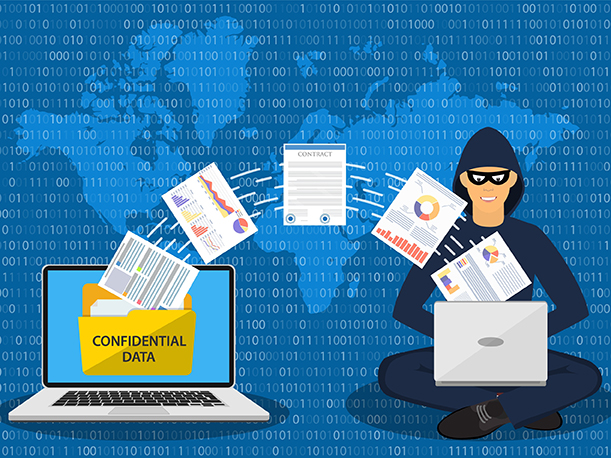eNews May 14
In the News
May 14, 2020
COVID-19’s Impact on Transportation
—Michael Miller, managing editor
Sunday marked 151 years since the Golden Spike ceremony in Utah to complete the Transcontinental Railroad. What once had the potential of being a six-month journey across the country by wagon was cut down to about a week of travel by rail from New York to San Francisco. A lot has changed since 1869, but the importance of the movement of people and goods has not. While the movement of people has been slashed due to COVID-19, the movement of goods, supplies and services has remained as important as ever.
Nearly every industry on the planet has seen some sort of impact from COVID-19, and the transportation industry is no different. Credit departments are seeing requests for extended terms and larger credit lines during this uncertain time, and many businesses are doing their best to just stay above water.
“Our credit and collection departments are working closely with our customers and suppliers to support each other to get through this terribly sad global pandemic, with people’s health and safety at the forefront of our concerns,” said one credit professional in the railroad industry.
Working through COVID-19 has taken its toll on businesses and individuals; some are taking to extreme measures to ensure employees are and stay healthy, while making sure business continues as normal as possible. Companies are shifting gears to accommodate the ever-evolving world around them. While supply chains have been disrupted, and some even completely broken forever, the distributors and transportation and freight companies are working overtime and changing how they do business. “Our company has shifted resources, such as equipment and drivers from accounts that were strong prior to the pandemic, e.g., retailers, to accounts that are surging now,” said a credit manager from a national transportation provider.
“Despite an unprecedented 46% drop in personal [vehicle-miles traveled], freight movement has fallen a modest 13%, highlighting how vital commercial freight is to the country’s efforts to recover from the pandemic,” noted a report from INRIX Research.
In NACM’s April coronavirus survey, nearly two-thirds of respondents in the transportation industry said they have experienced supply chain disruptions. Half of the transportation respondents in NACM’s March coronavirus survey said customer-initiated contact is due to an extension of credit terms. Over four-fifths of respondents in the April survey reported customers are requesting extended terms.
“We’ve noticed some increases for companies providing packaged goods, foods and medical supplies, but brick-and-mortar retail has fallen off significantly,” said a national transportation provider credit manager. “Additionally, with companies shutting down temporarily and furloughing employees, many are asking for extreme extended terms. Lastly, a recent spike in customer bankruptcies has occurred. I believe the longer the pandemic lasts, the more of these we will see.”

Ready for Battle?
A new Battle of the Forms module has been published on the Credit Learning Center! The new module is included in the Commercial Construction Credit Specialist course. It can also be purchased separately for $89.99.
Learn from attorney Jim Fullerton as he walks you through the Uniform Commercial Code Article 2, Sale of Goods. Find out what the Seller and Buyer roles are, as well as the best tactics when it comes to payment terms, implied and expressed warranties, and more.
Jim will explain the battle of the forms through real-world examples that can apply directly to your line of work!
Cases of Ransomware Rise,
Reminding Credit Professionals
to Stay Vigilant
—Andrew Michaels, editorial associate
Fraud comes in so many shapes and forms that it is simply overwhelming to keep track of the latest illegal tricks. Sometimes, fraudsters will revert to their old ways, in turn, giving potential targets a leg up because of the latter’s familiarity with the previously used tactic. This happens to be the case with ransomware and its recent resurgence with the coronavirus.
The U.S. Department of Homeland Security and its Cybersecurity and Infrastructure Security Agency (CISA) designates ransomware as “a type of malicious software, or malware, designed to deny access to a computer system or data until a ransom is paid.” Many credit professionals are already well-acquainted with incidents of ransomware, particularly in the form of business email compromise (BEC) or other clickable links that may result in the release of financial or other confidential information.
According to Coveware, an expert in ransomware recovery, 2019 ended on a solemn note in regards to fraud, with the average ransom payment costing north of $84,000—a 104% increase over last year’s third quarter. When COVID-19 reached the U.S. in January, the virus presented more opportunities for fraudsters to scam businesses out of money, an opportunity in which they were proven successful. Up 33% from 2019’s fourth quarter, Coveware’s latest report revealed the average enterprise ransom payment increased to $111,605.
“Spam attacks related to the outbreak surged and seldom-used ‘work-from-home’ network configurations led to increased ransomware attacks across the board,” the report states. “Some threat actor groups continued attacking health care organizations, while others refused to target them. … Small- and medium-sized professional service firms, such as law firms, IT-managed service providers and CPA firms continued to be the largest industry subset targeted by ransomware in Q1 2020.”
Signs of fraud have also emerged with the Paycheck Protection Program (PPP), a loan program designed to help small businesses maintain employee payroll. On April 30, Bloomberg reported the Justice Department’s (DOJ) investigation into the program, indicating possible fraud among borrowers and lenders. Assistant Attorney General Brian Benczkowski told the news outlet that some businesses are “sending in loan applications for large amounts of money that are overstating their payroll costs, overstating the number of employees they’ve had, overstating the nature of their business.”
Concerns of fraud were found in both approved and unapproved applications, the report states. The investigation is still underway as the DOJ determines whether businesses qualified for the program based on its loose guidelines as well as if businesses intentionally committed fraud.
Fraud awareness is all about using common sense, said Lee Tompkins, RGCP, a credit and collections manager at MPW Industrial Services. While his department is currently working from home, Tompkins said everyone was required to take two online courses that their training team put together from the company’s Learning Management System. The courses covered working remotely and how to be safe using the internet in addition to reviewing phishing scams and which emails should and should not be opened.
“I’m of the opinion that we are just as safe working from home as we are working in the office,” Tompkins said. “There’s still some vulnerability at the office and that would apply to home as well. Those attacks mainly come via emails that contain links that could compromise our servers.”
Avoiding fraud means remaining vigilant, he added, and not being afraid to ask questions if something seems off.

The eurozone’s third-largest economy has been among the hardest hit countries by the coronavirus. News agencies have reported that Italy’s industrial production fell nearly 30% in March and provisional figures indicate the country’s GDP has contracted 4.7% in first-quarter 2020. According to the website of trade credit insurer, Euler Hermes, the payment behavior for domestic Italian companies is poor despite regulations on late payments that are more constraining than applicable EU rules.
Join Bierens attorneys Enrica Bigazzi and Daniela Pizzuto as they discuss debt collection in Italy. They will present steps that credit professionals can take to collect on debt in the country. The presentation will also include:
- An overview of Italian law
- Mediation
- Their experience with disputed debt collection court cases
- Their experience with non-disputed debt collection court case
Rhode Island Superior Court Establishes
Non-Liquidating Receivership Calendar in
Response to COVID-19 Crisis
—Michael E. Jusczyk, Esq.
On March 31, 2020, the Rhode Island Superior Court announced the creation of its COVID-19 Receivership Program. The Program establishes a unique non-liquidating receivership calendar intended to assist Rhode Island businesses that are unable to pay their debts as they become due as a result of the coronavirus pandemic. The Program is designed to give struggling businesses time to obtain emergency funding under the CARES Act or other source, to resume paying its ongoing obligations under Court supervision, and repay its prepetition debt. It is not intended to cancel or restructure preexisting debt, or to take the place of a traditional bankruptcy filing. It is a state law alternative to the Small Business Reorganization Act (SBRA), recently amending the U.S. Bankruptcy Code.
Generally speaking, to participate in the Program a business must allege in a verified petition to the Superior Court that, as of Jan. 15, 2020, it was not in default of its financial obligations, and since that time it has either:
- suffered a 20% year-over-year loss of revenue over a 60-day period;
- been forced to cease a substantial portion of its operations as a result of a government shutdown order; or
- the COVID-19 pandemic has created such an adverse impact on the business as a result of either government-ordered closure or interruption in its cash flow that it has become unable to pay its debts as they become due in the usual course of business.
Once the petition is filed, the Court appoints a temporary, non-liquidating receiver, who is required to notify the business’ creditors that the petition has been filed. Unlike a traditional liquidation receivership, the non-liquidating receiver does not take over and operate the business, so long as the business is following the Operating Plan. Rather, the non-liquidating receiver reviews and revises the Operating Plan, similar to a trustee appointed under the SBRA.
The business remains in control, is permitted to operate in the ordinary course of business and has 10 days to submit an Operating Plan to the temporary receiver. The Operating Plan must address the business’ plans for the business to pay its debts as they become due, its pre-petition debts and its plan to exit the receivership. Creditors have only 10 days to comment on the Plan, and must be alert, as a hearing on the Operating Plan will be scheduled 15 days after it is mailed. Both the Receiver and the Court must approve the Operating Plan. Standards for confirmation are flexible, and considerably less complex than under the Bankruptcy Code.
Participation in the Program affords the business broad protections against creditors, similar to the automatic stay under the Bankruptcy Code. The Court issues an injunction that prohibits a creditor from taking “any act to obtain possession of … or to exercise control over” any of the business’ property. Creditors are further enjoined from seeking to enforce any lien against the business’ property and from taking “any act to collect, assess or recover a claim against the [business] that arose before the commencement of the receivership.” In addition, creditors may not file suit against the business to recover a claim that arose before the commencement of the receivership, or to enforce a judgment obtained before commencement of the receivership. As in a bankruptcy, a creditor that desires to take any act enjoined by the receivership order must obtain permission from the Court, and only after a hearing.
In practical terms, this means that once the non-liquidating receiver is appointed, a creditor may not seek to collect past-due rent, foreclosure a mortgage or file suit alleging breach of any contractual obligation against the business in receivership. All such issues (including, for example, a failure to pay rent due on April 1) must be addressed within the context of the receivership, and subject to the Court’s control. This new calendar has the potential to “put the brakes” on all collection activities until the business can obtain emergency funding to stay in operation and resume paying its debts. The Program may be especially attractive to sole proprietorships, which would otherwise be required to seek protection under bankruptcy law. Along with the negative impact to the business owner’s credit, this could also lead to the business’ liquidation.
The business must comply with its Operating Plan, or risk being placed into a liquidating receivership. The deadline for remedying defaults is brief—five days—but the transition from non-liquidating to liquidating receivership requires a court order.
Finally, the administrative order implementing the Program is only 10 pages, and confers broad discretion on the non-liquidating receiver and the court, including a catch-all provision that permits the court to “address specific issues in matters on a case-by-case basis.” The court may look to the SBRA for guidance or craft its own remedies.
There are also other important aspects of this Program not covered in this article. Any business considering filing a petition or any creditor of a business in receivership should seek advice of competent counsel before proceeding and should consider preparing its Operating Plan before filing.
Seyfarth Shaw LLP has experience with Rhode Island receiverships. Should you have any questions please do not hesitate to contact a Seyfarth attorney.
Michael E. Jusczyk, Esq., an associate at Seyfarth Shaw LLP, delivers value to his litigation clients by identifying and pursuing appropriate resolution strategies, including traditional litigation, loan modifications, borrower or third-party purchases or other workout solutions. He has also defended businesses and individuals facing employment, product liability and breach of contract claims.
Mike has extensive experience litigating insurance coverage matters, defending personal injury actions involving claims arising out of auto accidents slip-and-falls, product defects, and premises liability, and in defending bad faith settlement claims against insurance companies. Since 2016, Mike has primarily represented national banks and mortgage servicers in foreclosure-related litigation in state and federal court.

May 29, 2020
For CBA, CBF and CCE designation candidates to test on July 27, applications must be received by May 29.
For more information, contact the NACM Education Department at 410-740-5560 or This email address is being protected from spambots. You need JavaScript enabled to view it..
The Impact of COVID-19 on Payments and
Order Cancellations for Suppliers and
Distributors
—Stephen Sidkin, Esq.
At the present time, many suppliers and distributors are looking at the impact of COVID-19 on their businesses and thinking—hard.
Thoughts are likely to be at three levels.
1. Goods supplied for which payment has not been received
First, in terms of goods supplied, it may be that payment has not yet been made. If the distributor becomes insolvent, it will be crucial that either in the distributorship agreement or the supplier’s terms and conditions of sale (and preferably both) that the supplier has retained title to the goods supplied. If this is not the case, the supplier will be an unsecured creditor in the distributor’s insolvency.
Where, for example, the distributor has gone into administration/liquidation and title has not been retained by the supplier, it can be expected that the administrators/liquidators will seek to sell the goods. But they will not account to the supplier for the monies owed by the distributor. Instead, after paying their own costs and the secured/preferred creditors, any surplus will be divided up between the unsecured creditors (including the supplier) as a cohort.
Even where the supplier has included a retention of title clause, the issue will be whether: The words used, and the sequencing in which the distributor’s order is accepted, will ensure that the retention of title clause is effective. The term “the battle of the forms” is well known. But unfortunately, experience tells us that, unnecessarily, on too many occasions, it is a battle lost!
2. Attempts to cancel orders already made
Second, in terms of orders made, it would be unsurprising if, in some industries, a distributor did not give thought to trying to cancel the order.
Whether a supplier can refuse an attempt by the distributor to cancel a placed order, again depends on the distributorship agreement and the terms and conditions of sale in place between the parties and for each order.
But even where the supplier does refuse to accept a cancellation, what if the supplier is concerned that it will not be paid by the distributor? The difficulty lies in the supplier being bound to deliver the goods ordered. If the supplier fails to do so, then, depending on the terms of the distributorship agreement, it may be possible for the distributor to claim that such failure amounts to a serious (or repudiatory) breach of that agreement. This, in turn, may allow the distributor to: Achieve “cancellation” by the back door and, depending on the terms of the distributorship agreement, claim damages for the wrongful ending of the agreement.
3. Does the distributorship agreement provide for force majeure? If so, does this cover COVID-19?
Third, there is the distributorship agreement itself.
Such an agreement should (but will not always) provide for force majeure. If it does, the language of the force majeure provision will determine whether the current COVID-19 situation constitutes an event of force majeure. Unfortunately, as many force majeure provisions are included in distributorship agreements with minimal thought, it is far from certain that COVID-19 will be such an event. Finally, even if it does, what does the force majeure clause set out as the consequences of there being such an event?
So far as distributors are concerned, the above points can be read largely in reverse.
As a consequence, for both suppliers and distributors, it can be a question of “be careful what you wish for.”
Stephen Sidkin, Esq., is a founder/partner of Fox Williams. He is head of the Commerce & Technology department, specializing in channel management agreements concerning the supply chain, IP licensing and franchise law. He is focused on creating value for clients by helping them achieve their business objectives.

May 18
Joint Check Agreements - a Quick Primer
May 18
Life After COVID-19; Contract And Practical Considerations
May 19
Stay Energized In A Draining World: The Power Of Attitude
May 20
Wyoming Lien Waivers: What You Need To Know
May 20
International Credit: Impact Of The Pandemic
May 27
The Impact Of Coronavirus 19 On The Construction Industry
May 18
Joint Check Agreements - a Quick Primer
May 18
Life After COVID-19; Contract And Practical Considerations
May 19
Stay Energized In A Draining World: The Power Of Attitude
May 20
Wyoming Lien Waivers: What You Need To Know
May 20
International Credit: Impact Of The Pandemic
May 27
The Impact Of Coronavirus 19 On The Construction Industry
NACM/FCIB Webinars—Information, Ideas and Innovation
Without the Inconvenience



